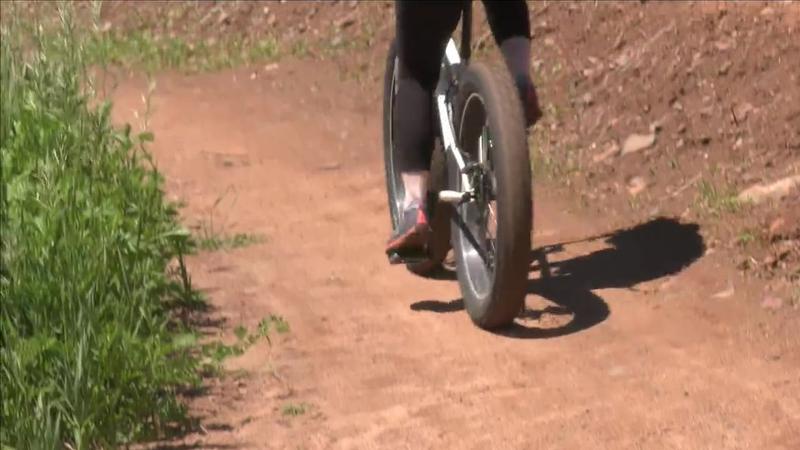Bike Report: Long-distance preparation

With long distance biking, having enough food, water, and gear is just as important as training.
With long distance biking, having enough food, water, and gear is just as important as training.
“It’s fun to be able to train as you go and train before the race, and then on race day, it’s fun to be able to go out there and show what you’ve done and show yourself that you can actually do it,” said Ski Hut Mechanic Sammy Klepperich. “Being prepared will make you more comfortable during the race.”
When it comes to long distance races, nutrition is crucial.
“You want to start off the day with a breakfast that you’re familiar with and is simple,” said Ski Hut Sales Manager Jake Torch. “I always make just a couple of eggs and some toast. And then when you get to the race, you want to make sure that you’re eating consistently.”
It is recommended to eat before you are hungry to prevent your body from crashing.
“If you aren’t eating consistently, what can happen is you can bunk with what they call it. Or you’ll just become really tired,” said Torch. “There’s products such as ‘Goo’, which you eat 5 minutes before a race and then every 45 minutes as you’re riding. You also want to be making sure you’re taking in a lot of water as well, about a bottle every hour.”
More water is needed on warm days to replace water lost through sweat.
“Oftentimes I bring something like a CamelBak or an Osprey with me because that allows you to store all of it and has a giant water pouch in it,” said Torch. “When riding, there’s going to be aid stations along the way, and I make sure to always stop at every single one of them.”
Alongside food and water, long distance bikers also need to bring any equipment needed for a simple repair.
“It’s super important to be prepared for a long distance bike race,” said Klepperich. “Having a multi tool, a spare tube, tire levers, CO2 cartridges, slash pump, and just being prepared mechanically for anything that your bike may have troubles with throughout the ride is super important. You can even carry extra things like a master link to help you be more prepared.”
Not having necessary equipment could affect your chance at winning.
“If you don’t have what you need with these longer distance races especially, you won’t be able to finish. It takes a while to get from aid station to aid station and between aid stations. There’s not a lot of support out there for you to get help.”
Every Thursday, WDIO News will bring you a story about the sport of bike riding. We will focus on the trail systems in our viewing area as well as equipment and bike maintenance.
If you have a biking story that you think we should cover, e-mail Sabrina Ullman at sullman@wdio.com.